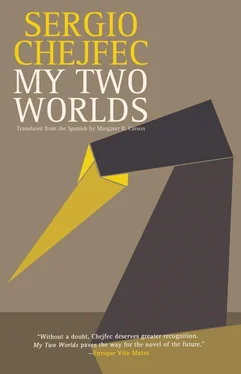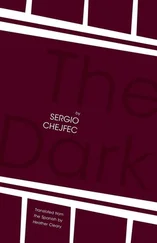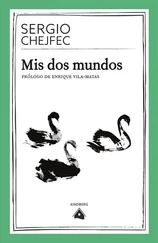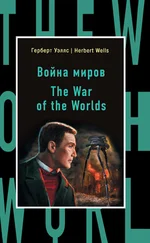Anything, it seemed, could distract those two men, except myself, of course, and when I passed them again on leaving it was as if nothing had happened. My next destination was a building that rose in the distance, at one end of the lake, spacious and low-built, beneath the green canopies of the trees which framed it from behind. The lake was to my left, sheltered by the profuse greenery which seemed to seek to disguise or to conceal it. At one point I thought that in all likelihood that afternoon would be my only time in this place, and so I couldn’t resign myself to the idea of not having another look at its waters. So I first went deep into the grass and then slipped through the stunted shrubs and trees by the shore. The water wasn’t very clear, but a few carp were visible, and one or another turtle swimming with effort, slowly, apparently at risk of sinking, nothing but their diminutive head, like a small nut, bobbing on the surface.
In controlled lakes such as that one, you can analyze, or at least see, the vicissitudes of a well-regulated life. Turtles and fish swim in peace, it’s hard to imagine anything threatening them. A life well-regulated so as to go on, oblivious of the struggle and adapted to its own, possibly unhappy, subsistence. These creatures, including the swans, could give me some kind of a lesson. I tried to see it clearly, but something hindered me; probably weariness. After a life devoted to thinking trivialities, weariness was my body’s last protest, the cry for help, now nearly extinguished, which still contains some kind of hope. I don’t want to be overly abstract, but at times weariness translates into longing. That’s what I felt at that moment: a longing for the well-regulated life, and for what’s foreseeable.
Most likely owing to my shadow as seen from underwater, and the hope for food it represented, a few fish swam up to me, followed by two or three turtles. I had nothing more to offer them than my bitter thoughts and a vague feeling of solidarity with their condition, a condition in which I recognized myself completely: if their lot had fallen to me, I would have been the most well-regulated of carp and the most predictable of turtles; I had nothing to offer them and yet they stayed there, without moving, drawing a semi-circle before me, hanging on my movements as if they made up an audience willing to watch me, with their own rules for positioning themselves and their own patience. Of course, I felt immediately called upon to do something. A writer always dreams of a real audience, and this was the most I could aspire to. Needless to say, I was tempted to give a speech or at least offer some brief disquisition. Because the realest audience is the one that understands the least, I mean, when it flaunts its deafness, or at least a bit of resistance, when it indicates our uselessness, etc.
That’s why I immediately felt united to these people, if I can call them that, since I’d never manage to know how they’d receive my words, or if my words would affect them in any way. They were, therefore, an ideal alibi, because thanks to their incomprehension I would address the world, all the species of the universe and their own materiality. I began by explaining to them how I’d arrived there, my problems in finding that splendid park. The animals listened to me with reverence and didn’t take their eyes off me; I’m not exaggerating when I say they seemed hypnotized by my story. The carp were motionless under the water, their unblinking eyes almost breaking the surface; the turtles, meanwhile, were paddling their feet to keep their heads afloat as their heavy bodies seemed on the verge of sinking. I ended up giving a speech in the least expected of places. I had never been especially interested in animals, apart from regarding them as companions in misfortune of a sort, though for disparate reasons, some unknown to me. That’s why I now didn’t know whether I should adopt an apologetic tone or disregard my former indifference toward them, imputing it to the passage of time or to a mere lack of communication. But, of course, I could have no idea, either, whether they expected any explanation on this matter from me.
I thought of presenting my impressions of the aviary, the stupefied, degraded birds killing time in their gigantic cages. I could tell them a bit about the uncoordinated strut of the peacock, which walked about the wide birdcage as if evading imaginary obstacles. A reeling caused not only by the weight of its great, fanned-out tail — an operation for which I saw no reason besides its desperation at being caged — but by the presence of some fact or some condition nonetheless invisible to me. That is, I had more than enough to say about their comrades in the park, but of course they were in all likelihood uninterested in hearing my opinion about them, a situation with which they probably were quite well-acquainted. They perhaps wanted me to speak about myself, or about my own species, Argentines, males, human beings in general, or whoever my peers were. Maybe they expected a rhapsodic speech harking back to the past and which praised a harmonious, shared natural origin. All of that could have happened, but the fact is I chose not to continue beyond this point.
I found it impossible that this situation should be occurring, and nevertheless that’s what was happening. We remained silent for a good while, in a sort of mutual contemplation. It may have only seemed so to me, but the carp and the turtles had taken on a supplicating mien. Their bodies swayed steadily in time with the water, corresponding to the gentle waves that reached the shore; and I was startled to verify that, despite their to-and-fro, they were able to keep their eyes fixed on mine, as if — the anxious thought occurred to me — they wanted to etch my face and my demeanor in their memory, in case we met again in the future. I understood it as a threat. The animal world continues to be fairly unknown, and I have no notion how they transmit experiences there. I wanted to cover my face with my hands to hide myself, and spy on them from between my fingers without their seeing me. Nonetheless they remained just the same, expectant. If someone had at that moment looked where I was standing, he would have thought it was a matter of a man weeping, a possibility which, when I tired of the position, made me feel like not lowering my hands: I feared I would find human eyes on me, surely anxious to discover some morbid detail or an explanation, perhaps the eyes of the attendant or the ice cream vendor, or those of a father bored with walking through the deserted park with his child.
Before this afternoon, I’d never wondered whether animals could be curious, like people. This situation made me see that the question was relevant, because my guests — note my vanity — never took their eyes off me. I knelt before the water as a means of getting out of the situation. My plan was to lift my hands suddenly from my face and give them a scare; once they’d been frightened off I’d go on my way as if nothing had happened. But it didn’t work. I waited a short while, the silence growing predictably deeper, and then all of a sudden I threw open my arms, gave a shout, leaned still farther over the water, and attempted to make a scary face. The front rows of the orchestra didn’t blink, as if each one of them had been sure of what to expect. Nothing was keeping me from turning my back on them and returning to the path, but we’d established a communication, and I didn’t want to be the one to put an end to it. Finally the solution came from someone also natural to the lake. First I noticed the waters roiling, and my audience as well; afterward I found out it was caused by a swan passing, though making its way relatively slowly. On board rode a father with his daughter, or so I imagined.
When I met the eyes of the two passengers, I offered a greeting. But I noticed that they weren’t so prepared for the situation, since the daughter kept looking at me impassively, while the father conveniently averted his eyes. I waited for them to move away a bit; they were heading for one of the far ends of the lake, where I had glimpsed the low-lying building. The swan was No. 15, it sported the number on its tail end painted shiny black, similar to the paint of its eyes. As I noted before, I had seen this specimen parked next to the boarding ramp, and now, meeting up with it again, I felt some solidarity with its condition. But as if it had been a signal, its entrance on the scene dispersed my audience, because when I looked at the water again, I found that the carp and the turtles had moved off. I managed to make out one lone turtle as it swam halfheartedly toward the middle of the lake.
Читать дальше












